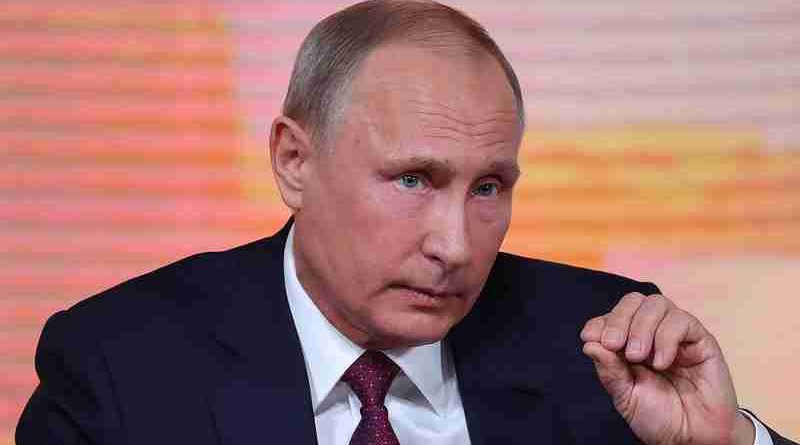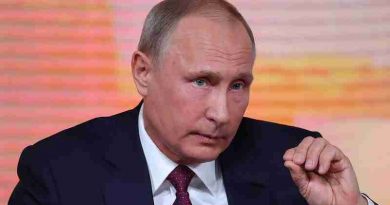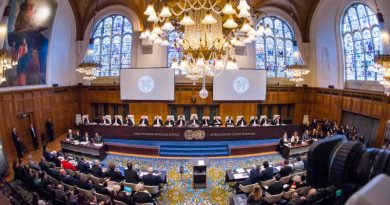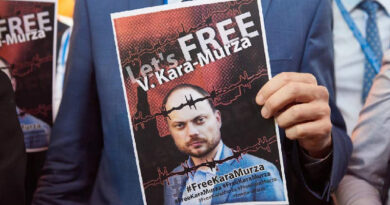Russia Orders Probe into Possible ‘Poisoning’ of Alexei Navalny

The speaker of Russia’s lower house of parliament has ordered State Duma security committee to investigate if some foreign forces were involved in the alleged poisoning of opposition leader Alexei Navalny.
By Rakesh Raman
The Russian parliament has ordered an investigation into the alleged poisoning of anti-corruption activist and opposition leader Alexei Navalny.
Navalny – a fierce critic of Russian President Vladimir Putin and founder of Moscow-based Anti-Corruption Foundation – was taken to Germany for treatment on Saturday from the Siberian city of Omsk where doctors had kept him in a state of artificial coma. The German hospital treating him said Monday that tests indicate he was poisoned.
According to CNN, Berlin’s Charite Hospital stated that Navalny was suffering from “intoxication by a substance from the group of cholinesterase inhibitors,” adding that currently there is no danger to his life.
Earlier on Tuesday (August 25), the Kremlin had said there was no need to investigate the circumstances leading up to Navalny’s illness and the German hospital’s initial diagnosis of poisoning was not yet conclusive.
Later, the speaker of Russia’s lower house of parliament ordered one of its committees – State Duma security committee – to investigate if some foreign forces were involved in the alleged poisoning of Navalny with the aim to cause unrest in Russia.
On August 20, Navalny – a Moscow-based anti-corruption campaigner and Russia’s main opposition leader – was admitted to a Siberian hospital in a critical condition. Navalny, 44, had lost consciousness on a flight to Moscow and his plane made an emergency landing.
Although the real cause of his sickness is not yet known, according to reports, his spokeswoman Kira Yarmysh believes that Navalny has been poisoned as “something” was mixed in his tea. He was kept on a ventilator when his treatment was under way.
Recently, Navalny had declared that with the help of his supporters he will hold “street protests” against Putin after the coronavirus pandemic – possibly in the autumn.
“What Putin fears most is the street,” said Navalny. “He (Putin) will not leave until we start to take to the streets in the hundreds of thousands and in the millions,” Reuters had quoted Navalny.
In July, thousands of people protested in Russia’s Far East to express their opposition to Putin. Defying social-distancing norms and without wearing masks during the coronavirus pandemic, the protesters in Russia’s vast hinterland chanted “Putin Resign” slogans.
Navalny had cheered the protests in the Far East, hailing the street demonstration in Khabarovsk as the “biggest in the city’s history.”
The protests were held in response to a dubious poll held on July 1 to accept constitutional changes that will allow Putin to stay in power until 2036. Navalny refused to accept the results of the voting, saying that it was an illegitimate vote designed to legalize Putin’s presidency for life.
In 2018, Putin had won the presidential election to lead Russia for his second 6-year term. Putin has ruled the country as either President or Prime Minister since 1999. In 2018 election, according to official results, he got more than 76% of the votes with an increase of 12% from his 2012 performance.
Putin’s nearest competitor Pavel Grudinin received just 12% of total votes and Navalny, who was planning to challenge Putin in the election, was barred from the race.
It is the second time Navalny has allegedly been poisoned. In 2019 also when he had given a call for street protests against Putin, he was hospitalized with severe sickness.
The possibility of an attempt on his life cannot be ruled out because a number of Kremlin critics have been poisoned or killed during Putin’s 20 years in power.
Boris Nemtsov, a former Deputy Prime Minister of Russia, was shot dead in 2015 in Moscow soon after announcing a rally to oppose the Putin-supported war with Ukraine.
In 2018, the United Kingdom had alleged that Russia was behind an attack using a deadly nerve-agent in Salisbury. The attack left Sergei Skripal and his daughter, Yulia, hospitalized in critical condition. Russia had rejected the allegations.
Skripal is a former Russian military intelligence officer who acted as a double agent for the UK’s intelligence services during the 1990s and early 2000s.
By Rakesh Raman, who is a national award-winning journalist and social activist. He is the founder of a humanitarian organization RMN Foundation which is working in diverse areas to help the disadvantaged and distressed people in the society.





